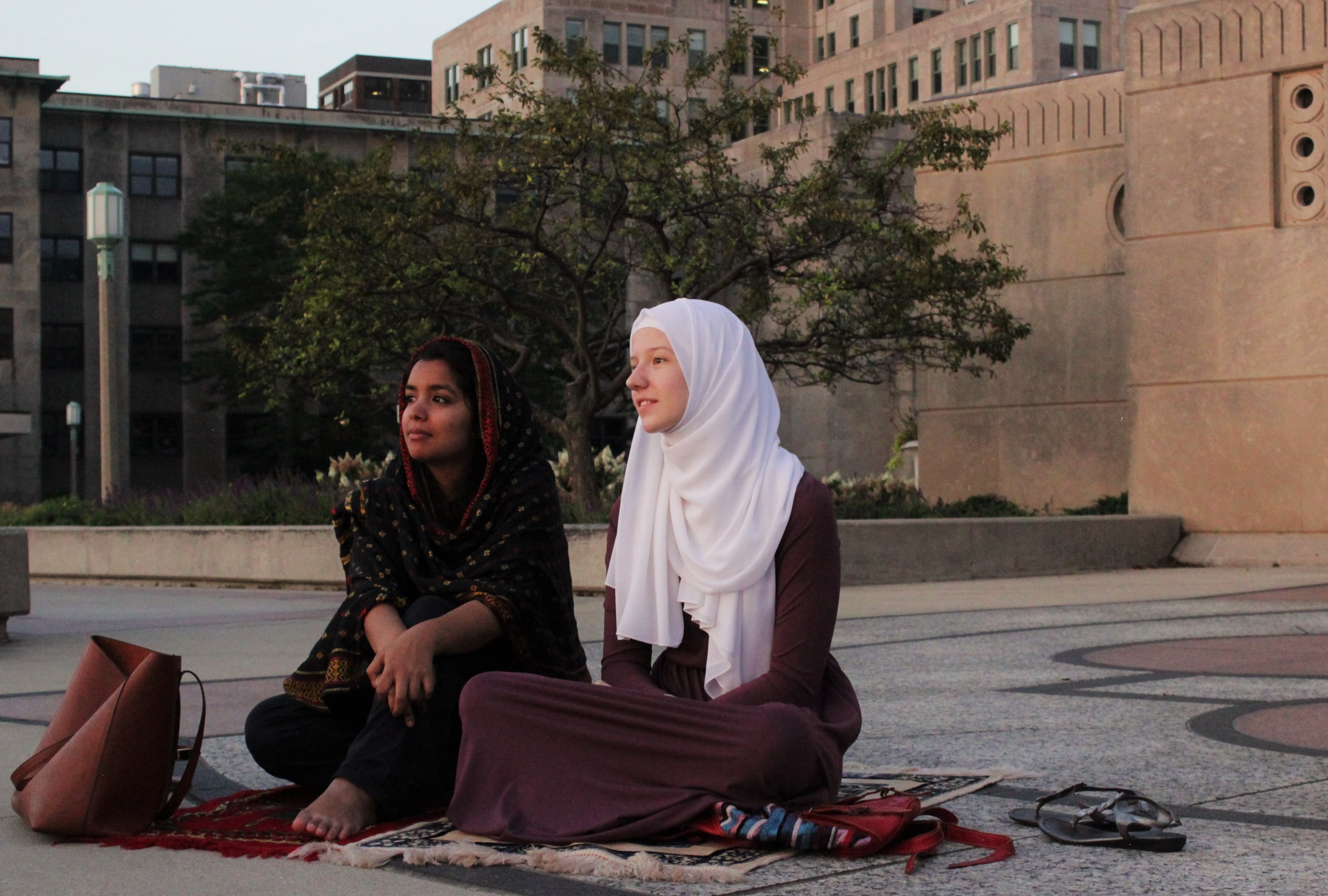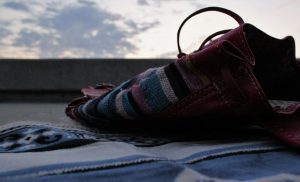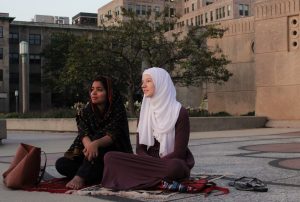The Man on the Bus
It is week three in Rome and completing this blog entry has just been one of an ever-increasing collection of things I have to do.
September 12 was the biggest holiday in the Islamic calendar: Eid al-Adha. It’s the holiday in which Muslims perform the the pilgrimage to Mecca: Hajj. Unfortunately, I have a Roman Catholicism class right in the morning and felt it to be a poor choice to try and skip it to go to the mosque. So I arrived in Piazza Cavour at 8:45 that morning with a new friend, Sara, and meandered about until the rest of the class showed up with the teacher, who is a priest. He’s a lovely fellow, incredibly friendly. He reminded us several times that what we were doing was a “mini pilgrimage.” From Piazza Cavour, across the river (twice), and to the Vatican, a student eventually nudged me to inform the teacher, Father Bohr, that that morning had in fact been the day for Muslim pilgrimage to Mecca. As a priest though, I didn’t expect him to take too much interest in the matter, but he did listen and eventually said he may ask for my help in planning for a lesson he does on Islam in the spring.
In some attempt at being festive, I did dress up and text some people back home. The highlight of my day came when, upon leaving the Vatican and attempting to navigate back to the bus stop solo, a man who was advertising for a tourist service called after me: Assalamu alaykum! Eid Mubarak!
There certainly aren’t many Muslims in Rome, but of the few they are, I greatly appreciate their presence.

As a Ricci Scholar with a project focused on Muslims, I do have the privilege of seeing them more than one might usually see them in Rome. The research mentor assigned to me here in Rome, Sabrina Lei, is a brilliant Italian Muslim convert. She’s been Muslim for ten years whereas I’ve been Muslim for almost two. Today, September 23, was my second meeting with my mentor. We met at a cafe near the Cipro metro stop, a bit of a walk west of the Vatican. I greatly enjoy her influence in that she’s against the victimization of the self; meaning, though she’s Muslim and a Muslim-minority country, she refuses to herself as a victim. It’s a stance I quite enjoy for she seems rather at peace with herself and her environment. Even despite the occasional roadblock she encounters as a Muslim, she acknowledges herself as being in a place of incredible privilege and instead focuses her energy on being thankful for that privilege while navigating that privilege to see how it can be used for the benefit of others. This last point manifests in her and her husband, who is Indian and also Muslim, consistently publishing books — often Italian translations of popular Islamic philosophy books otherwise available in English and Arabic.
Somewhat ironically, in taking the 990 bus back north towards the school after our meeting, I encountered a bit of a roadblock. The bus was utterly packed, yet a few bodies in front of me I spot an old man staring me directly in the eye. I hold his gaze. This little episode admittedly isn’t too strange: staring is a normal Italian cultural practice. However, he begins shaking his head several times over as I maintain eye contact and smile. By this gesture I assume he doesn’t like my hijab and think, so what? He certainly wouldn’t be the first one.
As stop by stop goes by and bodies filter out, I look around and spot a familiar face: a woman sitting in the back who I know works at the dining hall here at the Rome Center. She smiles and calls me over to sit by her. It’s soon established that she doesn’t know English, but we’re able to maintain some form of small talk in Italian. She’s in her fifties. She has a few kids. She’s worked for Loyola for over five years.
As we chat, the man who’d been staring at me suddenly steps in front of me and asks, in Italian, where I’m from. My companion tells him I don’t know Italian, but he asks again, so I tell him I’m American. He asks if I’m Muslim. Si. Always? No. I’ve been Muslim two years, I say, to which he asks why? I shrug seeing as that’s not something I can convey over the course of a brief bus ride, let alone in Italian. And with that, his demeanor very evidently sours. He begins preaching, telling me I need to be Christian, telling me he used to be Muslim and became Christian (which was very obviously a lie). He says my hijab is ugly, he pulls at an end of it saying I need to take it off. This little confrontation barely progresses five seconds before my companion yells at him, shooing him away, and announcing that I’m perfect before grabbing my face and twice kissing my cheek. He gets off at the next stop as she converses with surrounding patrons about how he’s crazy. Soon, we get off to walk to the school together. She made a point of sticking by my side, and I must say I’m quite thrilled to have found a friend out of her seemingly maternal desire to protect. That man may have stirred tension in confronting me, yet his confrontation created a closer friendship between me and my companion. I’m quite thankful for it, actually.



